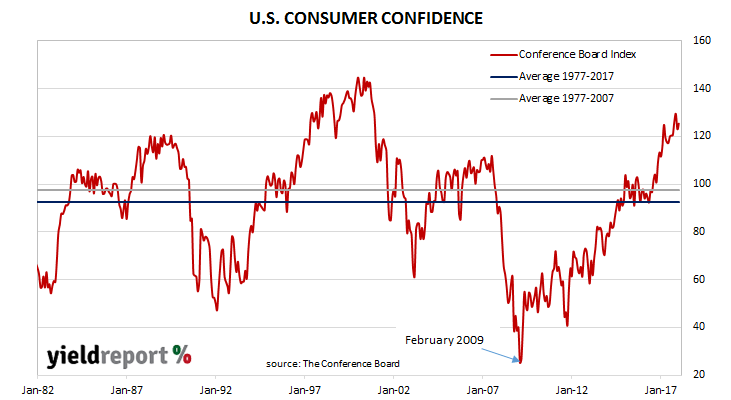Consumer confidence surveys are important private sector surveys even though economists view them as lagging indicators. Their importance lies in the confirmation of spending patterns. As consumption in developed countries may amount to 60%-70% of GDP, knowing how it is behaving is important for financial markets’ forecasts of GDP growth rates, which in turn flow into credit growth and inflation rates.
The January reading of the Conference Board’s Consumer Confidence Index came in at 125.4, up from December’s revised reading of 123.1 and much higher than 2017’s comparable January figure of 111.6. The index was the result of a survey which ended on 18 January 2018.
 Households’ views of current conditions slid, albeit from high levels. Expectations of the near-future improved although households were described by Lynn Franco, Director of Economic Indicators at The Conference Board as “ambivalent” about the prospects of pay rises. Even so, on balance, the household sector was optimistic. “Overall, however, consumers remain quite confident that the solid pace of growth seen in late 2017 will continue into 2018.”
Households’ views of current conditions slid, albeit from high levels. Expectations of the near-future improved although households were described by Lynn Franco, Director of Economic Indicators at The Conference Board as “ambivalent” about the prospects of pay rises. Even so, on balance, the household sector was optimistic. “Overall, however, consumers remain quite confident that the solid pace of growth seen in late 2017 will continue into 2018.”

